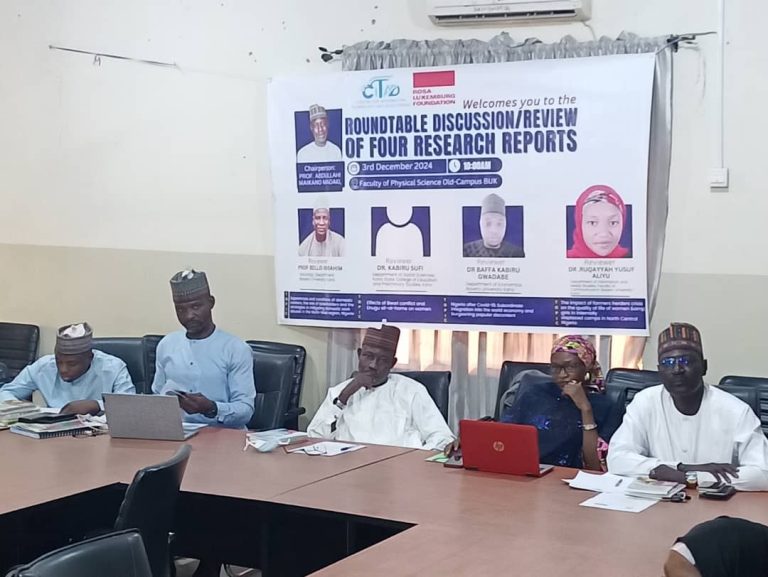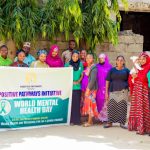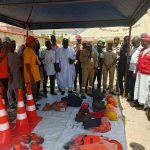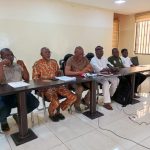
The Centre for Information Technology and Development (CITAD), in collaboration with the Rosa Luxemburg Foundation (RLF), organized a roundtable discussion on Tuesday at Bayero University Kano.
The event aimed to foster intellectual engagement by reviewing research documents presented by academics.
The session featured four speakers: Prof. Bello Ibrahim, Dr. Kabiru Sufi, Dr. Baffa Kabiru Gwadabe, and Dr. Ruqayyah Yusuf Aliyu. Each provided analyses and corrections for four research papers presented.
The first paper examined the working conditions of domestic workers in Northwest Nigeria, addressing issues such as abuse and stakeholder involvement.
The second discussed the impact of conflict and restrictions on women in Bwari and Enugu.
The third explored Nigeria’s economic challenges in the aftermath of the COVID-19 pandemic. The fourth addressed the effects of the farmers-herders crisis on the quality of life for women and girls in internally displaced persons (IDP) camps.
Prof. Bello Ibrahim, represented by Dr. Hassan Ahmad Hassan, reviewed the paper on “Experiences and Conditions of Domestic Workers in Northern Nigeria.” He highlighted human rights violations, including physical, psychological, and sexual abuse, while offering corrections to identified gaps in the research.
Dr. Kabiru Sufi discussed “The Effects of the Bwari Conflict and Enugu Sit-at-Home Order on Women,” shedding light on the origins of the Bwari conflict, its resolution, and the implications of the sit-at-home order on women in Enugu.
Dr. Baffa Kabiru Gwadabe analyzed Nigeria’s economic challenges post-COVID-19, emphasizing the struggles faced by the nation while providing constructive feedback on the research document.
Dr. Ruqayyah Yusuf Aliyu concluded the session by critically examining “The Impact of Farmers-Herders Crises on the Quality of Life for Women and Girls in IDP Camps in North Central Nigeria.”
Participants actively engaged with the speakers, particularly on the subject of domestic workers’ conditions.
The session’s chairperson, Prof. Abdullahi Maikano Madaki, pointed out that, aside from physical abuse, concerns like health, cleanliness, and hygiene were also significant issues.
The roundtable emphasized the importance of the reviewed research, identified areas for improvement, and reaffirmed the organizers’ commitment to fostering intellectual discourse and knowledge-sharing.





